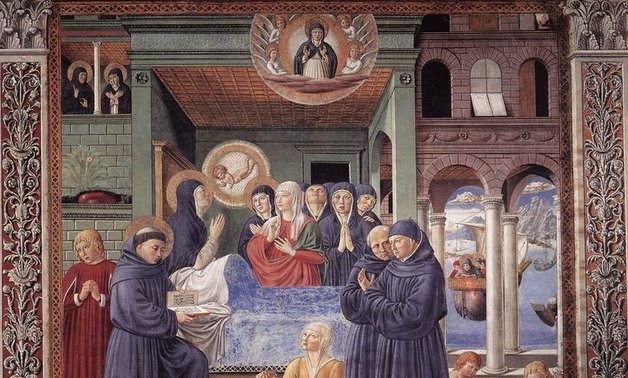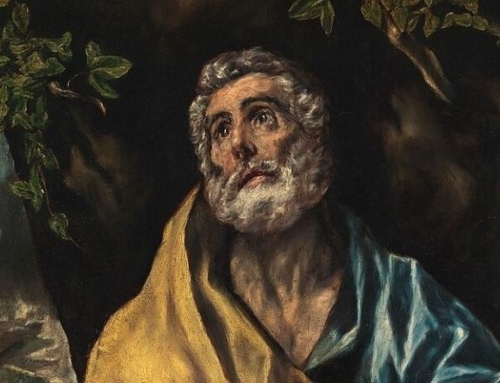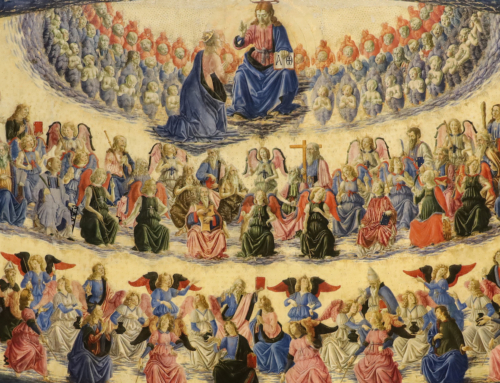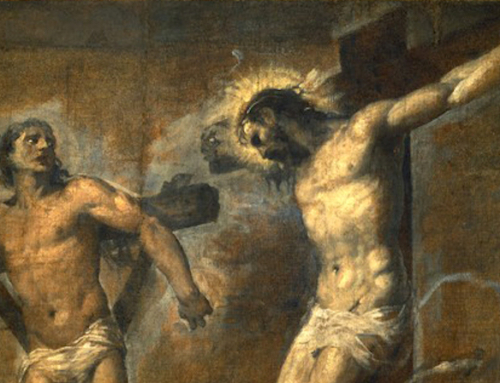It happened more often than I would have imagined: an elderly Catholic with whom I was speaking would break down in tears. Why were they weeping? Because his or her children or grandchildren had not been to Church in who knew how many years. Their beloved progeny had lost the faith; and the grandchildren did not even have it yet to lose!
I don’t think this is unusual today. Many, many veteran Catholics have seen and are seeing their children drift away from the faith. Sometimes aggressively, but more often apathetically. Matthew Arnold’s hauntingly beautiful lines in “Dover Beach” come to mind:
The Sea of Faith
Was once, too, at the full, and round earth’s shore
Lay like the folds of a bright girdle furled.
But now I only hear
Its melancholy, long, withdrawing roar,
Retreating, to the breath
Of the night-wind, down the vast edges drear
And naked shingles of the world.
What went wrong? What did these presently dolorous parents neglect in their child-rearing? The question of responsibility is easily answered: tears of parents tend to mean they did all they could to raise their children as Catholics. But what is to be done now? Well, pray, obviously. Pray to a mother who knows all about this situation, one who won her son back through intercession and tears: St. Monica.
Monica is one of Christianity’s most famous mothers. Her son, St. Augustine of Hippo, left the world one of its finest masterpieces, his Confessions. This autobiographical story of a wayward youth and his return to the Catholic faith is also the story of a mother’s love, a love that provides an example for those struggling with wayward sons and daughters today.
Monica brought Augustine up in the faith:
When I was still a boy, I had heard about eternal life promised to us through the humility of our Lord God, coming down to our pride, and I was already signed with the sign of the cross and seasoned with salt from the time I came from my mother’s womb. (Confessions, I.xi.17)
During Augustine’s time baptism was often delayed until late in life, yet he was signed and sealed as a Christian. Monica undoubtedly spoke about her faith in Christ to her boy. But it didn’t stick, or didn’t seem to; Augustine wandered away from the faith he was raised in and fell among numerous bands and fashionable circles, intellectual and otherwise. But Monica did not account this wandering to her own neglect; she did not spend time wondering what she had or hadn’t done. She, like the persistent widow in Jesus’ parable (Luke 18:1-8), prayed and cried out to God for her son’s return to the faith. Monica also bothered a bishop, badgering him to speak with her son; but he declined, telling her of his own return from wandering away as a boy. But, as Augustine relates it, Monica was not deterred:
She pressed him with more begging and with floods of tears, asking him to see me and debate with me. He was now irritated and a little vexed and said: ‘Go away from me: as you live, it cannot be that the son of these tears should perish.’ (Confessions, III.xii.21)
The bishop was correct. Augustine returned to the faith through his garden reading of St. Paul’s Epistle to the Romans. And who did he go to first following conversion? Monica, of course, who “saw that [God] had granted her far more than she had long been praying for in her unhappy and tearful groans (Confessions, VIII.xii.30).”
St. Monica is an exemplar: one need not descend into despair over the waywardness of one’s children or grandchildren; God is in control. Sometimes talking with the fallen away is helpful, but often, like certain strong demons, only prayer and fasting can conquer spiritual rebellion. And many, many tears, for as a medieval Irish poem has it: “Great are the claims of tears on cheeks.” Did not Jesus weep bitterly before he raised Lazarus from the tomb? So too the Psalmist sings: “Weeping may tarry for the night, but joy comes with the morning (Ps. 30:5).”
St. Monica is ready to intercede for fallen away sons and daughters today. Catholics instinctively call upon St. Anthony to find lost things; perhaps they will learn to call upon St. Monica to find their lost children and bring them home. But, as the old saying goes: Be careful what you wish for… “I only wanted him to practice the faith again, not to become a priest!” God’s providence means He decides not only when a son or daughter returns, but also what he or she returns for. Monica herself had to modify her grandmotherly expectations; as Augustine writes: “You ‘changed her grief into joy’ (Ps. 29:12) far more abundantly than she desired, far dearer and more chaste than she expected when she looked for grandchildren begotten of my body (Confessions, VIII.xii.30).” Through her intercession, may other parents likewise experience abundant joy in whatever purposes God has in store for their children upon their return to the faith.
✠
Image: Benozzo Gozzoli, Death of St. Monica







